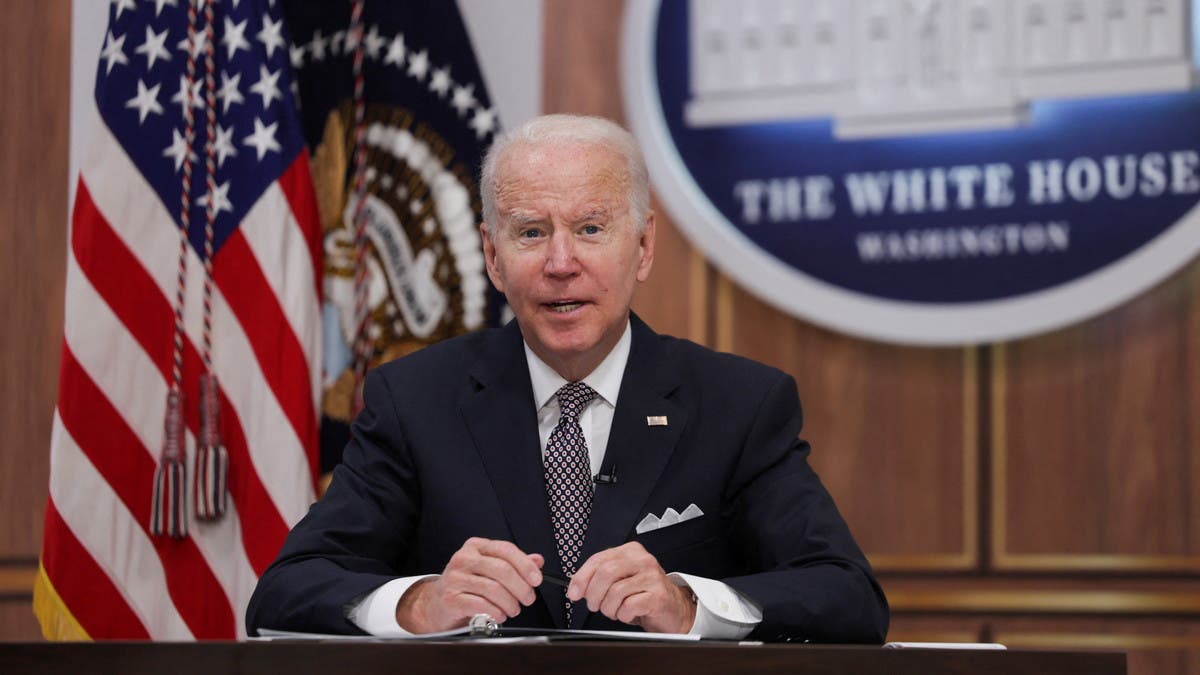US President Joe Biden on Friday called on China and other major economies to redouble their efforts to combat climate change and improve energy security, warning that Russia’s invasion of Ukraine had sharpened the need for urgent action.
At the third virtual gathering of the Major Economies Forum (MEF) under his presidency, Biden urged countries to accelerate moves to cut methane emissions, adopt ambitious targets for zero-emission vehicles and work to clean up global shipping.
For all the latest headlines follow our Google News channel online or via the app.
He also called on countries to spend a collective $90 billion to speed commercialization of clean technologies, and to develop new fertilizers that cut agricultural emissions and boost food security.
“Russia’s brutal and unprovoked assault on the state of Ukraine has fueled a global energy crisis and sharpened the need to achieve long-term reliable energy security and stability,” Biden told leaders at the virtual forum.
Biden said it was critical to work together to mitigate the fallout from the war, which has driven up prices worldwide for food and energy.
Friday’s meeting is the largest gathering of world leaders on climate change before the global climate conference known as COP27, to be held in November in Sharm el-Sheikh, Egypt.
The White House said Biden and Egyptian President Abdel Fattah el-Sisi would announce during the conference a joint effort to build climate resilience in Africa.
The countries that make up the MEF account for roughly 80 percent of global economic output and global greenhouse gas emissions.
Several countries were expected to join in Biden’s initiatives, while other countries would announce new 2030 emissions targets, the White House said, but did not name them.
‘Very bright light’
Russia’s invasion of Ukraine and efforts by Western nations to isolate Moscow with sanctions have driven energy prices sharply higher and exposed Europe’s huge dependence on Russia for about 40 percent of the natural gas used to heat its homes and generate electricity.
The crisis has underscored the importance of decarbonizing transport, rethinking fertilizer and improving energy security, a senior US official said, adding it had cast a “very bright light on where the solutions are, and what it takes to get there.”
Biden said the United States would join with major gas producers and consumers to launch a “global methane energy pathway” that would provide fresh technical and financial resources to mitigate methane in the oil and gas sector, while working to eliminate routine gas flaring no later than 2030.
Washington planned to spend $21.5 billion on large-scale demonstration projects to achieve net-zero emissions and would urge other countries to chip in to reach the total $90 billion in estimated investment needs, one of the officials said.
Biden, who last year signed an executive order mandating that half of all light-duty vehicles sold in the United States be zero-emission by 2030, urged other nations to follow suit.
The United States and Norway would also launch a green shipping challenge for COP27 to encourage governments, ports and cargo owners to come up with concrete steps towards full decarbonization no later than 2050, White House officials said.
Finally, Biden noted the impact of the war in Ukraine on the global food system, and set a goal of raising $100 million in new funding for development of alternative fertilizers in time for COP27.
Also participating in the forum will be leaders from Argentina, Australia, Chile, Canada, the European Union, Germany, Indonesia, Japan, Saudi Arabia, Mexico, Norway, Nigeria, South Korea, Turkey, United Arab Emirates, Britain, Vietnam and France, the White House said.
Read more:
UAE concerned by Iran nuclear program, seeks reassurances
Pompeo says Biden admin. not reinforcing support to secure Israel, ‘friends’ in Gulf
AP Interview: Biden says recession is ‘not inevitable’


 World3 years ago
World3 years ago
 World3 years ago
World3 years ago
 Business11 months ago
Business11 months ago
 Entertainment7 years ago
Entertainment7 years ago
 World7 years ago
World7 years ago
 Entertainment7 years ago
Entertainment7 years ago




